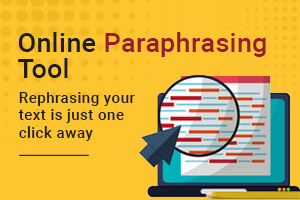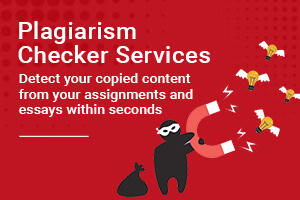
Best Research Critique Guidelines To Critique A Research Article
It may surprise you to learn that 4.6 billion pieces of common critiques of research articles content are created daily. There's never been more material available online, from academic papers and social media updates to news pieces and blog postings. It is more important than ever to hone your article critiquing skills in this day of excess information. Learning the craft of article critique will help you traverse the enormous sea of knowledge and find the pearls of wisdom, whether your goals are to enhance your writing, keep informed, or increase your academic prowess.
Overview Of Critical Evaluation
A critical analysis and evaluation of a written work, such as a news article, blog post, or journal article, constitutes an article criticism, which is a useful ability. It analyses the content's deeper levels, highlighting its advantages and disadvantages as well as its overall efficacy, going beyond simple summarising. Imagine yourself having a stimulating dialogue with the writer in which you offer insightful criticism.
Let's take an example where you are evaluating a research paper about climate change. Rather than just restating the results, you would examine the methodology, how the data were interpreted, and whether there were any biases. You would also make insightful comments to enhance the conversation. Writing an article criticism helps you hone your critical eye and strengthen your capacity to recognize both places for development and the qualities of well-written content.
Research Critique Elements
Now we will continue with listing all the necessary questions for you to brainstorm all the list of ideas for research critique guidelines you will be having into one place and work on it step by step. These questions will help you figure out what you should and should not be putting in your critique.
Identifying Information To Include
- When and where did the article appear in print? Who penned the piece?
- What was the study's objective?
- What kind of study—an ethnography, case study, content analysis, or experimental study, for example—was it?
- What is the theoretical framework or analytical method (such as a feminist examination, a critical examination, or the use of a certain theoretical framework)?
Research Design And Methodology
In this section you need to figure out:
- How does the approach complement or mirror previous research on the same subject?
- Why is this approach practical?
- How true to life is it?
- Why will the data generated by this strategy address the study question?
- How is the validity of the procedure addressed?
- How does the researcher get around the method's constraints? Are
- Are there significant or small restrictions? What impact will these restrictions have?
- your capacity to address your research question with this data?
- Were the tri-council rules followed and was the research conducted ethically?
Interpretation Of Findings
- Was a cause or a correlation (connection) discovered by the researcher?
- Do any other explanations for the results?
- How much of the results can be "generalized"? Are the results applicable to other groups or circumstances?
Writing Quality, Clarity, Style And The Organization Of Information
- Does the source adhere to the genre of the discipline or disciplines it covers?
- Does the source provide enough information? Are there any blanks or locations where the description is superfluous?
- Is the information presented logically in the source?
- Do the sources offer a neutral point of view? Does the writer appear to possess a blind spot or bias?
The Value Of The Study
- Is the difficulty with the research important?
- What progress has the study made in terms of theory, practice, or knowledge?
Steps To Critique A Research Article
You've been tasked with reviewing a journal article, but are you unsure of where to begin? Don't worry; we've put together a thorough guide with several phases to help you go through this process with assurance. Journal papers are respected sources of academic information, and evaluating them critically calls for a methodical process. Now let's examine how to assess and study a journal paper proficiently:
-
Title Of Research
The research topic should be sufficiently explained in the title to help you understand it.
- Is the title concise enough to convey the topic of the research without going into too much or too little detail?
- Are the variables or theoretical problems mentioned, along with any connections between them?
-
Usage Of Keywords
In research critique, keywords are crucial for both doing the critique and creating a well-organized critique. Determine the main ideas, phrases, and terms that are essential to the study before you begin to critique a research article. These are the terms that aid in your comprehension of the topic of the study. While reading the material, jot down a list of these terms. A keyword analysis is essential when examining the study's findings. They can be used to evaluate how well the study's findings match the goals and theories of the investigation. It may be criticized if the keywords are not sufficiently covered in the results.
-
Introduction
By outlining the subject or problem, the study's history, and the backdrop and justification for the research, the introduction should acquaint the reader with the work.
Consider this:
- Can the problem or research question be answered?
- Does the issue warrant conducting the research?
- Does the research question make sense given the background of the study?
- Is the goal well-defined and centered around a single central idea?
- Do you know exactly what the study aimed to accomplish?
-
Materials Used For Critiquing Research Articles
Assessing the quality and validity of research articles necessitates a methodical and analytical approach. To carry out such a critique in an efficient manner, you'll need certain supplies and equipment. The following resources are frequently used to evaluate research articles:
- The actual research article: Acquire a copy of the research paper you plan to review, as it is the primary source of knowledge that requires careful study and analysis.
- A Framework for Assessment or Checklist: Utilizing a preset checklist or evaluation framework allows for methodical evaluation of study design; critiquing a qualitative research article, methodology, data analysis, reporting, and other research article components across various disciplines.
- Relevant Reference Resources: Reference materials may be necessary to understand the theoretical framework, statistical methodologies, and research background of the article, depending on the topic and research methods used.
- Statistical Software: Statistical software like SPSS, R, or Excel can be utilized to verify the accuracy of data analysis in intricate papers.
- Rules and Requirements: The STROBE statement for observational studies and CONSORT statement for clinical trials are guidelines for conducting and reporting research, ensuring transparency and thoroughness.
- Online databases: Online databases like PubMed, Google Scholar, and institutional libraries offer valuable resources for confirming or refuting research findings.
- Access to Experts: Consider discussing the study piece with colleagues or subject-matter experts to gather additional perspectives and ideas.
- Access to Peer-Reviewed Journals: Access to journals and publications in the same subject enables comparison of the research piece with previous studies and existing knowledge.
-
Results
Analyze how the article presents its data and findings. Have the results been communicated clearly and effectively? Look for any differences between the writers' interpretations and the data they supplied.
-
Discussions
Consider the discussion section, in which the writers explain and contextualize their findings. Examine the validity of their conclusions and whether the data sufficiently supports them.
Hire Our Services To Critique Your Research Paper At Cheap Cost
A review paper writing service such as ours is committed to providing the best possible service within the allotted time frame. Our staff of expert writers simplifies things with their background in academic and business writing. The majority of our authors hold doctorates and work as professors at reputable universities and institutions. As a result, they guarantee the best possible quality in their job. Hiring them will ensure that you receive the greatest review paper writing service and that your work will be completed on schedule.
Superior Pay Someone To Do My Assignment Review Assistance
Our staff takes care to adhere to all of your specifications and strive toward achieving your objective. We carefully follow all of your requirements when writing your paper. You select the topic and level of difficulty, and we'll assign the top writer from our staff of review paper writers. All you need to do is provide your subject, level, and topic requirements (if any), and you will receive the best work possible in the allotted time.
Inventive and Special Assistance in Writing Review Papers
We guarantee that all of the papers you receive pass the plagiarism test and are completely original thanks to a number of methods we use to verify each piece of work is unique. In addition, our University Assignment Help Online editors thoroughly examine each text citation, and we guarantee complete secrecy for our review paper writing services. Employ our knowledgeable, qualified editors and writers. Every member of the Words Doctorate team makes sure that your paper is timely, well-organized, and of the greatest caliber that is, error-free.
Support for Review Paper Publications
Our Cheap Assignment Writing Service UK for review paper staff will satisfy all of your wants and supply you with helpful assistance. Whatever your needs may be, our knowledgeable instructors and writers will make sure to fulfill them all and provide you with the greatest assistance right away. Our team's only goal is to provide you with the finest possible experience and timely support at the most competitive prices.
In A Nutshel
Writing critical analyses of articles is a crucial skill that advances our development as critical thinkers and engaged scholars. Accept the chance to examine and provide insightful criticism in order to advance knowledge and comprehension in the future. Recall that every critique is an opportunity to interact with fresh concepts and broaden our perspectives. Thus, maintain improving your critical thinking abilities and relish the exploration that comes with being an academic!



